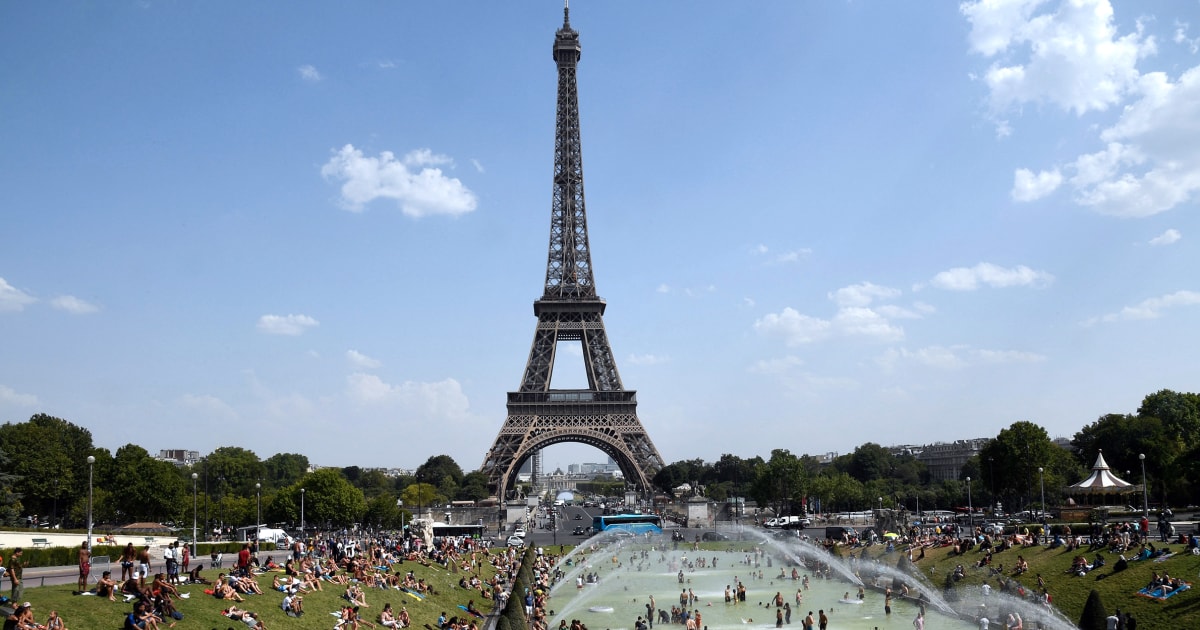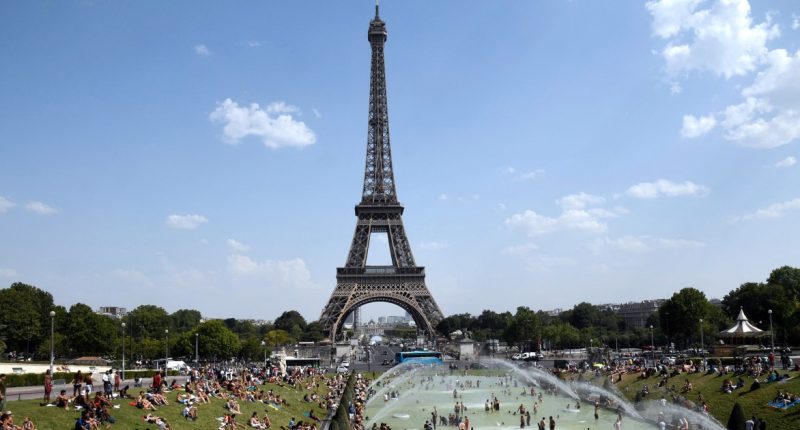
“Among the European capitals, it’s the one with the highest risk,” said Pierre Masselot, a statistician at the London School of Hygiene and Tropical Medicine, who evaluated heat exposure concerns for 854 European cities.
In Paris, the athletes village will feature wildlife-friendly rooftops, carbon-friendly building materials and greenspaces, including a public park.
But the village won’t feature air conditioning in athletes’ rooms, part of a plan to reduce the games’ greenhouse gas emissions.
Instead, the complex will rely on natural airflow cooling and an underground water-cooling system. Organizers told The Associated Press last year that nighttime temperatures won’t climb above 79 degrees, even in a heat wave.
The climate is warmer than it was in 2003. A study in Nature Climate and Atmospheric Science suggested that heat wave temperatures now have the potential to be up to 7 degrees F warmer than they were during the 2003 heat wave.
During the last Summer Olympics, in Tokyo, heat pushed dozens of athletes beyond their limits and forced organizers to reschedule events.
Some 110 athletes suffered heat-related illnesses during the Tokyo games as temperatures at some outdoor venues exceeded 95 degrees F, according to research published in the journal BMJ Open Sport & Exercise Medicine. There were 10 cases of severe heat illness, including heatstroke. Several athletes required ice bath treatment, the journal article said.
In fear of Tokyo’s urban temperatures, Olympic organizers moved endurance events, like the marathons and the race walks, about 500 miles north to Sapporo and adjusted start times to early morning hours. It didn’t work — runners in the women’s marathon faced road temperatures above 100 degrees, with high humidity.
Nearly half of the heat-related illnesses were in endurance events in Sapporo.
The Tokyo Games took place a year late during a state of emergency because of Covid-19, and spectators didn’t attend, lightening emergency personnel’s load. Shota Tanaka, an adjunct researcher at Kokushikan University who was a medical operations manager at Olympic venues, said that having no spectators dramatically reduced the strain on medical facilities but that it’s something with which Paris must contend.
“We expected a really high number” of heatstroke cases, Tanaka said. “Holding the Olympic games starting in August is a basically crazy idea in terms of heatstroke.”
Athletes will prepare for heat in the weeks before the games.
Source: | This article originally belongs to Nbcnews.com









